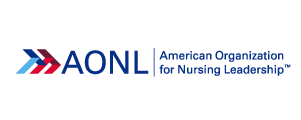
Protocols to Prevent SSIs and SSCs: Initiatives to Improve Outcomes
Protocols to Prevent SSIs and SSCs: Initiatives to Improve Outcomes
[Sponsored] Hospital-acquired conditions, such as surgical site infections (SSIs) and complications (SSCs), are a major burden to the U.S. health care system. With 60% of SSIs considered to be preventable, clinical protocols can make a critical difference in avoiding delayed discharges, costly readmissions, and delayed healing post-surgery. In this executive dialogue, nurse executives discuss how organizations can reduce the incidence of SSIs and SSCs through greater transparency, collaboration and enhanced clinician and patient education.
This executive dialogue will highlight key findings on:
- Continued fatigue from the COVID-19 pandemic presents an ongoing challenge for hospitals and health systems. Emphasis must be placed on adherence to handwashing and basic infection prevention techniques to prevent and manage SSIs and SSCs.
- Identifying risk factors for SSIs enables targeted education to prevent their occurrence. One solution is to implement a pre-surgical preparation clinic to work closely with high-risk patients in the weeks leading up to their procedure.
- Data is a strong influencer and can significantly impact clinician behavior. Organizations should consider sharing individual performance data in advance of team meetings to facilitate a productive discussion.
- Additional guidelines are needed to identify when to delay surgery for patients at high-risk for infections.
- Gaps in patient education can result in post-discharge infections leading to readmissions. Organizations should reassess their patient education and develop easy to understand guidelines for wound care and conduct patient follow-up calls post-discharge.
Sponsored by


Related Resources
Sponsored White Papers
Facing COVID-19, new nurses are entering a more stressful and emotionally exhausting environment than ever before. Learn how to best support this…
Sponsored White Papers
Primary and acute care practitioners have unique opportunities and a growing sense of responsibility to address substance use and mental health…
Standards/Guidelines
To help you lead confidently during times of crisis, AONL has developed a growing compendium of leadership resources to support you in caring for…
Press Releases
This policy brief is the collaborative effort of nursing leaders who propose and support academic-practice partnerships between health care…
Guides/Reports
The linkage between nursing care and patient outcomes is widely accepted, yet it is often difficult to achieve an evidence-based allocation of…
Sponsored White Papers
[Sponsored] The four essential practices you need to think differently about personalizing experiences, exceeding your patients’ expectations, and…

